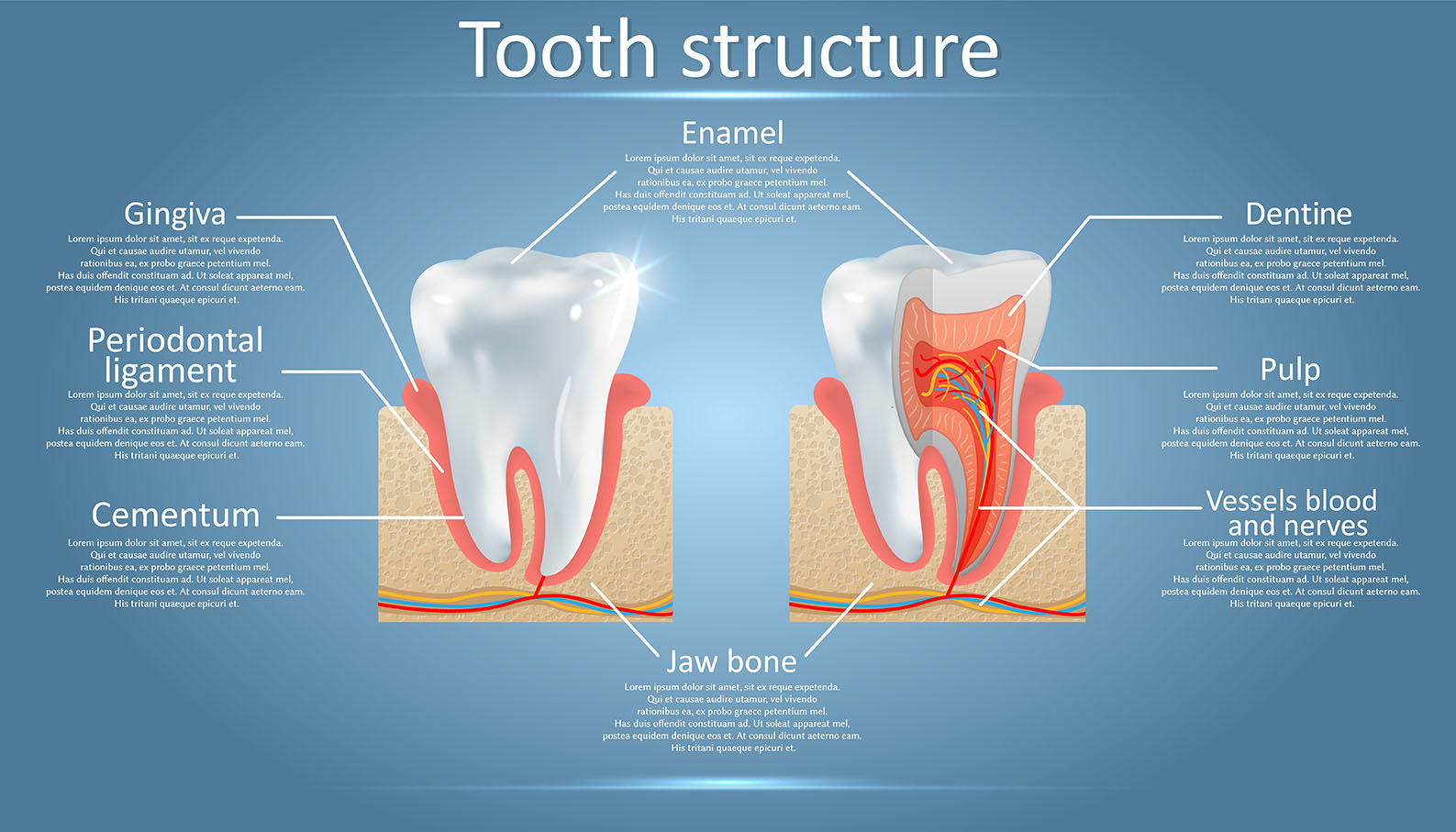
< Back
enamel
Definition
Enamel is the hardest substance in the human body. It is a type of mineralized tissue that covers the crown of a tooth. The enamel layer is about 2 to 3 millimeters thick, and it is made up of about 96% hydroxyapatite, a mineral that is also found in bones.
Enamel is formed in the developing tooth. The cells in the tooth's outer layer, called the ameloblasts, produce hydroxyapatite crystals. These crystals then harden and form enamel.
Enamel is very important for protecting the teeth. It helps to keep the teeth from decay and it also helps to keep the teeth strong. However, enamel is also very brittle. It can be easily damaged by chewing hard foods, brushing too hard, or consuming acidic foods or drinks.
Once enamel is damaged, it cannot be repaired. This is why it is important to take good care of your teeth and to avoid activities that can damage the enamel.
How can the word be used?
An enameled surface is a surface that has been coated with enamel.

Different forms of the word
Noun: enamel, enamelware, enameling.
Adjective: enamelled, enamelled.
Verb: to enamel, enamelise.
Synonyms: glaze, varnish, coat.
Antonyms: unglazed, unvarnished, bare.
Etymology
The word "enamel" comes from the Old French word enamel, which comes from the Latin word ænamellum. The Latin word ænamellum is derived from the Greek word ἐνάμιλλον (enamelon), which means "glaze" or "enamel.".
Question
Where can you find enamel?
AQA Science Exam Question and Answer
Question:
Discuss the significance of enamel in dental health and its role in protecting teeth from decay. Explain the composition and structure of enamel, emphasising its hardness and resistance to wear. Describe how dental hygiene practices and dietary choices can influence enamel health. Provide examples of common dental problems related to enamel erosion and the importance of preventive measures to maintain strong and healthy teeth.
Answer:
Enamel is a crucial component of dental health, serving as the outermost layer of teeth and protecting them from decay. It is the hardest substance in the human body, composed primarily of minerals like calcium and phosphate, giving it remarkable strength and resistance to wear.
Regular dental hygiene practices, such as brushing with fluoride toothpaste and flossing, play a vital role in maintaining enamel health. Fluoride, a mineral that strengthens enamel, is often present in toothpaste and drinking water.
Dietary choices can also impact enamel. Frequent consumption of sugary and acidic foods and drinks can contribute to enamel erosion, leading to dental problems like cavities and tooth sensitivity.
Preventive measures, such as dental check-ups, professional cleanings, and practising good oral hygiene, are essential for preserving enamel integrity and overall dental health. Taking care of enamel ensures strong and healthy teeth, allowing individuals to maintain their natural smiles and oral well-being throughout their lives.